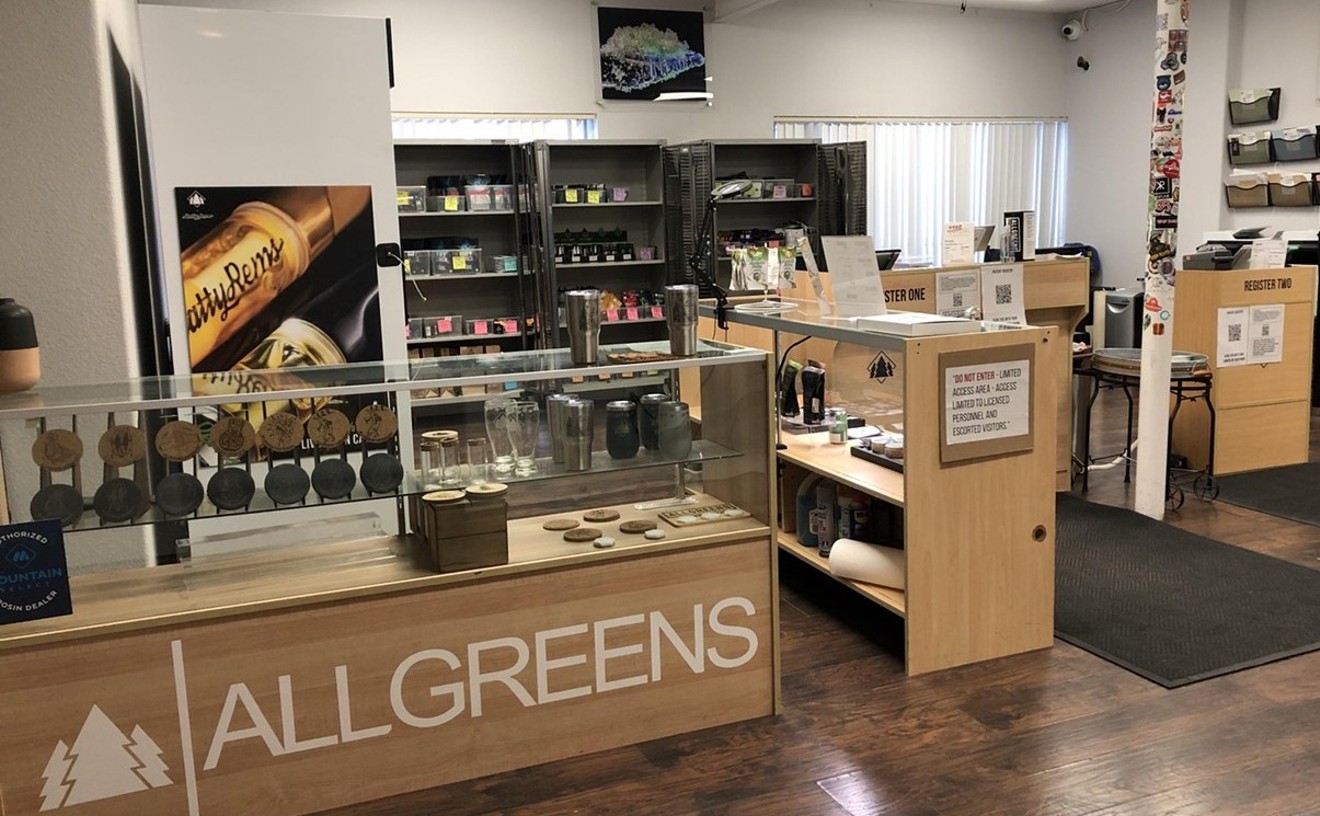One of Colorado's new marijuana laws in 2020 allows for commercial marijuana delivery, but it's not as simple as ordering a pizza just yet (sorry, Leonardo, Donatello, Raphael and Michelangelo). Like every other cool new thing in legal pot, delivery will have a slow roll-out, and it's loaded with rules that are already confusing consumers and medical marijuana patients.
According to a bulletin sent by the state Marijuana Enforcement Division earlier this week, even pot business owners have a lot of questions about the new delivery system, such as how and when they can participate and where deliveries will be allowed. To clear up some of the confusion, we answered some frequently asked questions about marijuana delivery in Colorado.
Is delivery allowed for medical marijuana, recreational marijuana, or both?
Only medical marijuana operations can apply for delivery in 2020, with recreational stores and licensees having to wait until January 2, 2021, to apply.
Is it available everywhere?
Like dispensaries, cultivations and every other licensed marijuana business, delivery services can only receive an MED license after gaining approval from the local jurisdiction in which they operate, so towns and counties would have to approve delivery before prospective businesses could apply. Towns can jump in for medical-only delivery now, but they would have to approach recreational delivery again in 2021. These issues would be addressed either via ballot initiatives or by a governing council, with local governments holding the right to add requirements to state delivery regulations.
Can delivery services operate in towns and counties that don't allow dispensaries?
Yes, but with a big if: The law still requires local approval from the town you're living in. According to the MED, medical delivery services can operate outside of their respective jurisdictions unless their governments explicitly ban such practices, but the MED also says that delivery is banned in a locality "unless it has enacted an ordinance or resolution expressly permitting such delivery."
Can towns and counties without dispensaries allow delivery?
Towns aren't required to have dispensaries within their borders to allow delivery, but they still must adopt language allowing delivery.
How much are taxes and fees for marijuana delivery?
According to the MED, which is a branch of the state Department of Revenue, state and local taxes "are generally determined at the point of delivery, not the location where the [dispensary] is located." However, localities can also establish their own rules and unique sales taxes for services like delivery.
Per the rules of the new delivery law, dispensaries performing delivery are "required to charge a one-dollar surcharge" to customers on each delivery, and "remit the surcharge on a monthly basis" to the town in which the dispensary is located. This doesn't count any delivery fees or tips that most services include.
Can patients younger than 21 use delivery?
Delivery of medical marijuana to patients under 21 is not permitted, but the MED adds that stores can deliver to parents or guardians of a patient who is eighteen or younger.
Are there daily delivery limits?
A dispensary cannot deliver to the same patient more than once, according to the MED, with medical marijuana sales tracked by the state medical marijuana registry. The same dispensary purchasing restrictions exist for patients during delivery orders, allowing no more than two ounces of flower; forty grams of concentration; or infused products containing no more than 20,000 milligrams of THC.
[
{
"name": "Air - MediumRectangle - Inline Content - Mobile Display Size",
"component": "12017618",
"insertPoint": "2",
"requiredCountToDisplay": "2"
},{
"name": "Editor Picks",
"component": "17242653",
"insertPoint": "4",
"requiredCountToDisplay": "1"
},{
"name": "Inline Links",
"component": "18838239",
"insertPoint": "8th",
"startingPoint": 8,
"requiredCountToDisplay": "7",
"maxInsertions": 25
},{
"name": "Air - MediumRectangle - Combo - Inline Content",
"component": "17261320",
"insertPoint": "8th",
"startingPoint": 8,
"requiredCountToDisplay": "7",
"maxInsertions": 25
},{
"name": "Inline Links",
"component": "18838239",
"insertPoint": "8th",
"startingPoint": 12,
"requiredCountToDisplay": "11",
"maxInsertions": 25
},{
"name": "Air - Leaderboard Tower - Combo - Inline Content",
"component": "17261321",
"insertPoint": "8th",
"startingPoint": 12,
"requiredCountToDisplay": "11",
"maxInsertions": 25
}
]












